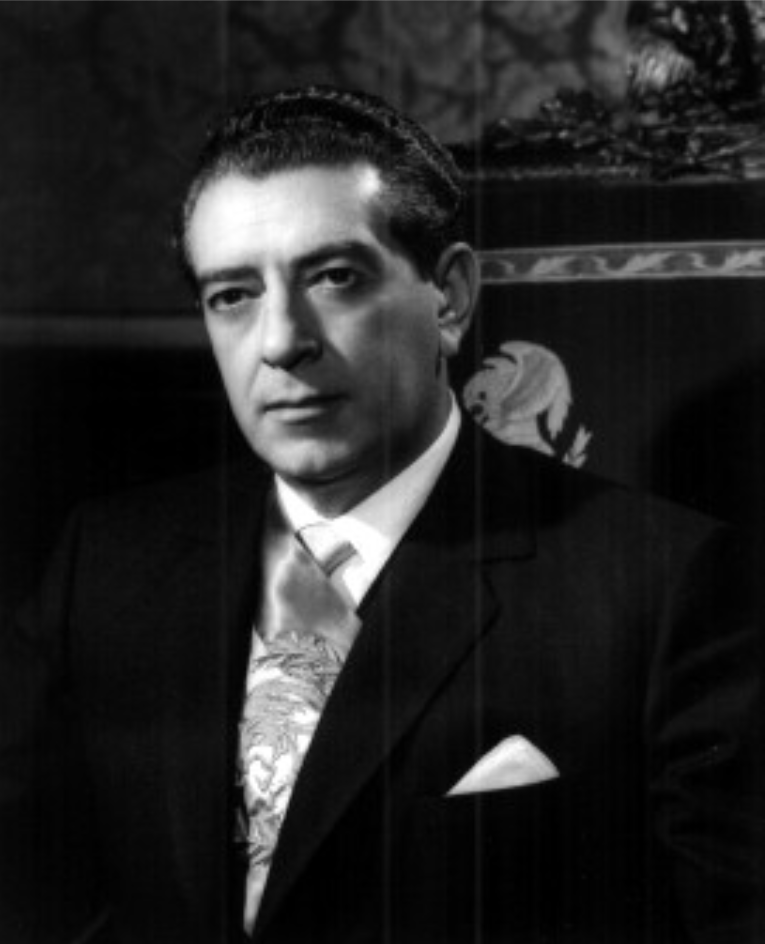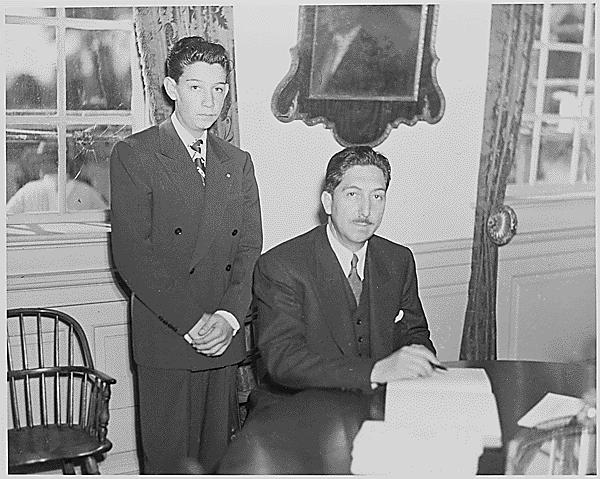|
Mexican Movement Of 1968
The Mexican Movement of 1968, known as the Movimiento Estudiantil (''student movement'') was a social movement that happened in Mexico in 1968. A broad coalition of students from Mexico's leading universities garnered widespread public support for political change in Mexico, particularly since the government had spent large amounts of public funding to build Olympic facilities for the 1968 Olympics in Mexico City. The movement demanded greater political freedoms and an end to the authoritarianism of the PRI regime, which had been in power since 1929. Student mobilization on the campuses of the National Autonomous University of Mexico, National Polytechnic Institute, El Colegio de México, Chapingo Autonomous University, Ibero-American University, Universidad La Salle and Meritorious Autonomous University of Puebla, among others created the National Strike Council. Its efforts to mobilize Mexican people for broad changes in national life was supported by sectors of Mexican c ... [...More Info...] [...Related Items...] OR: [Wikipedia] [Google] [Baidu] |
Protests Of 1968
The protests of 1968 comprised a worldwide escalation of social conflicts, predominantly characterized by popular rebellions against state militaries and the bureaucracies. In the United States, these protests marked a turning point for the civil rights movement, which produced revolutionary movements like the Black Panther Party. In reaction to the Tet Offensive, protests also sparked a broad movement in opposition to the Vietnam War all over the United States as well as in London, Paris, Berlin and Rome. Mass movements grew not only in the United States but also elsewhere. In most Western European countries, the protest movement was dominated by students. The most spectacular manifestation of these was the May 1968 protests in France, in which students linked up with wildcat strikes of up to ten million workers, and for a few days the movement seemed capable of overthrowing the government. In many other countries, struggles against dictatorships, political tensions and authori ... [...More Info...] [...Related Items...] OR: [Wikipedia] [Google] [Baidu] |
Universidad Iberoamericana Ciudad De México
The Ibero-American University ( es, Universidad Iberoamericana), also referred to by its acronym ''UIA'' but commonly known as ''Ibero'' or ''La Ibero'') is a private, Catholic, Mexican higher education institution, sponsored by the Mexican province of the Society of Jesus. In 2009, the UIA received the SEP-ANUIES Prize as the best private university in Mexico. The Ibero's flagship campus is located in the Santa Fe district of Mexico City. It is ranked by QS World University Rankings as 701-750 worldwide an7in Mexico. Its main library, Biblioteca Francisco Xavier Clavigero, holds more than 400,000 books and journals and as of 2007 is one of the largest university libraries in the country. It also has one of the largest law libraries in Mexico. Other institutions affiliated with, but independent from, Ibero in Mexico City are found in Guadalajara, León, Torreón, Puebla, Playas de Tijuana, and Jaltepec. Together, they form the Jesuit University System, a network of Jesuit-run ... [...More Info...] [...Related Items...] OR: [Wikipedia] [Google] [Baidu] |
Enrique Krauze
Enrique Krauze (Mexico City, September 16, 1947) is a Mexican historian, essayist, editor, and entrepreneur. He has written more than twenty books, some of which are: ''Mexico: Biography of Power'', ''Redeemers'', and ''El pueblo soy yo'' (''I am the people''). He has also produced more than 500 television programs and documentaries about Mexico’s history. His biographical, historical works, and his political and literary essays, which have reached a broad audience, have made him famous. Life and career He received his bachelor’s degree in Industrial Engineering from the National Autonomous University of Mexico (1965-1969). He received a Doctorate in History from the Center of Historical Studies in El Colegio de México (1969-1974). He is a member of the Mexican Academy of History and the Mexican National College (El Colegio Nacional (Mexico)). He is also director of the publishing house Clío and director of ''Letras Libres'', a cultural magazine. The Engineering Facul ... [...More Info...] [...Related Items...] OR: [Wikipedia] [Google] [Baidu] |
Luis Echeverria
Luis is a given name. It is the Spanish form of the originally Germanic name or . Other Iberian Romance languages have comparable forms: (with an accent mark on the i) in Portuguese and Galician, in Aragonese and Catalan, while is archaic in Portugal, but common in Brazil. Origins The Germanic name (and its variants) is usually said to be composed of the words for "fame" () and "warrior" () and hence may be translated to ''famous warrior'' or "famous in battle". According to Dutch onomatologists however, it is more likely that the first stem was , meaning fame, which would give the meaning 'warrior for the gods' (or: 'warrior who captured stability') for the full name.J. van der Schaar, ''Woordenboek van voornamen'' (Prisma Voornamenboek), 4e druk 1990; see also thLodewijs in the Dutch given names database Modern forms of the name are the German name Ludwig and the Dutch form Lodewijk. and the other Iberian forms more closely resemble the French name Louis, a deriv ... [...More Info...] [...Related Items...] OR: [Wikipedia] [Google] [Baidu] |
Adolfo López Mateos
Adolfo López Mateos (; 26 May 1909 – 22 September 1969) was a Mexican politician who served as President of Mexico from 1958 to 1964. Beginning his political career as a campaign aide of José Vasconcelos during his run for president, López Mateos encountered repression from Plutarco Elías Calles, who attempted to maintain hegemony within the National Revolutionary Party (PNR). He briefly abandoned politics and worked as a professor at the Autonomous University of Mexico State, becoming a member of the PNR (renamed Party of the Mexican Revolution) in 1941. López Mateos served as senator for the State of Mexico from 1946 to 1952 and Secretary of Labor during the administration of Adolfo Ruiz Cortines from 1952 to 1957. He secured the party's presidential nomination and won in the 1958 general election. Declaring his political philosophy to be "left within the Constitution", López Mateos was the first self-declared left-wing politician to hold the presidency since L ... [...More Info...] [...Related Items...] OR: [Wikipedia] [Google] [Baidu] |
Miguel Alemán Valdés
Miguel Alemán Valdés (; 29 September 1900 – 14 May 1983) was a Mexican politician who served a full term as the President of Mexico from 1946 to 1952, the first civilian president after a string of revolutionary generals. His administration was characterized by Mexico's rapid industrialization, often called the Mexican Miracle, but also for a high level of personal enrichment for himself and his associates. His presidency was the first of a new generation of Mexican leaders, who had not directly participated in the Mexican Revolution, and many in his cabinet were also young, university-educated civilians, close friends from his days at university. Early life and career Alemán was born in Sayula in the state of Veracruz,''Current Biography 1946 Yearbook'', p. 9. the son of revolutionary Gen. Miguel Alemán González and Tomasa Valdés Ledezma. Both had been married before, with Alemán González having a son by his first wife. They had two sons together, Carlos a ... [...More Info...] [...Related Items...] OR: [Wikipedia] [Google] [Baidu] |
Civil Liberties
Civil liberties are guarantees and freedoms that governments commit not to abridge, either by constitution, legislation, or judicial interpretation, without due process. Though the scope of the term differs between countries, civil liberties may include the freedom of conscience, freedom of press, freedom of religion, freedom of expression, freedom of assembly, the right to security and liberty, freedom of speech, the right to privacy, the right to equal treatment under the law and due process, the right to a fair trial, and the right to life. Other civil liberties include the right to own property, the right to defend oneself, and the right to bodily integrity. Within the distinctions between civil liberties and other types of liberty, distinctions exist between positive liberty/positive rights and negative liberty/ negative rights. Overview Many contemporary nations have a constitution, a bill of rights, or similar constitutional documents that enumerate and seek to ... [...More Info...] [...Related Items...] OR: [Wikipedia] [Google] [Baidu] |
Protests Of 1968
The protests of 1968 comprised a worldwide escalation of social conflicts, predominantly characterized by popular rebellions against state militaries and the bureaucracies. In the United States, these protests marked a turning point for the civil rights movement, which produced revolutionary movements like the Black Panther Party. In reaction to the Tet Offensive, protests also sparked a broad movement in opposition to the Vietnam War all over the United States as well as in London, Paris, Berlin and Rome. Mass movements grew not only in the United States but also elsewhere. In most Western European countries, the protest movement was dominated by students. The most spectacular manifestation of these was the May 1968 protests in France, in which students linked up with wildcat strikes of up to ten million workers, and for a few days the movement seemed capable of overthrowing the government. In many other countries, struggles against dictatorships, political tensions and authori ... [...More Info...] [...Related Items...] OR: [Wikipedia] [Google] [Baidu] |
Authoritarianism
Authoritarianism is a political system characterized by the rejection of political plurality, the use of strong central power to preserve the political ''status quo'', and reductions in the rule of law, separation of powers, and democratic voting. Political scientists have created many typologies describing variations of authoritarian forms of government. Authoritarian regimes may be either autocratic or oligarchic and may be based upon the rule of a party or the military. States that have a blurred boundary between democracy and authoritarianism have some times been characterized as "hybrid democracies", "hybrid regimes" or "competitive authoritarian" states. The political scientist Juan Linz, in an influential 1964 work, ''An Authoritarian Regime: Spain'', defined authoritarianism as possessing four qualities: # Limited political pluralism, is realized with constraints on the legislature, political parties and interest groups. # Political legitimacy is based upon appeals ... [...More Info...] [...Related Items...] OR: [Wikipedia] [Google] [Baidu] |
Federal Government Of Mexico
The Federal government of Mexico (alternately known as the Government of the Republic or ' or ') is the national government of the United Mexican States, the central government established by its constitution to share sovereignty over the republic with the governments of the 31 individual Mexican states, and to represent such governments before international bodies such as the United Nations. The Mexican federal government has three branches: executive, legislative, and judicial and functions per the Constitution of the United Mexican States, as enacted in 1917, and as amended. The executive power is exercised by the executive branch, which is headed by the president and his Cabinet, which, together, are independent of the legislature. Legislative power is vested upon the Congress of the Union, a bicameral legislature comprising the Senate and the Chamber of Deputies. Judicial power is exercised by the judiciary, consisting of the Supreme Court of Justice of the Nation, the Cou ... [...More Info...] [...Related Items...] OR: [Wikipedia] [Google] [Baidu] |
Gustavo Díaz Ordaz
Gustavo Díaz Ordaz Bolaños (; 12 March 1911 – 15 July 1979) was a Mexican politician and member of the Institutional Revolutionary Party (PRI). He served as the President of Mexico from 1964 to 1970. Díaz Ordaz was born in San Andrés Chalchicomula, and obtained a law degree from the University of Puebla in 1937 where he later became its vice-rector. He represented Puebla's 1st district in the Chamber of Deputies from 1943 to 1946. Subsequently he represented the same state in the Chamber of Senators from 1946 to 1952 becoming closely acquainted with then-senator Adolfo López Mateos. Díaz Ordaz joined the campaign of Adolfo Ruiz Cortines for the 1952 election and subsequently worked for the Secretariat of the Interior under Ángel Carvajal Bernal. He became the secretary following López Mateos' victory in the 1958 election, and exercised ''de facto'' executive power during the absences of the president, particularly during the Cuban Missile Crisis. In 1963, ... [...More Info...] [...Related Items...] OR: [Wikipedia] [Google] [Baidu] |







